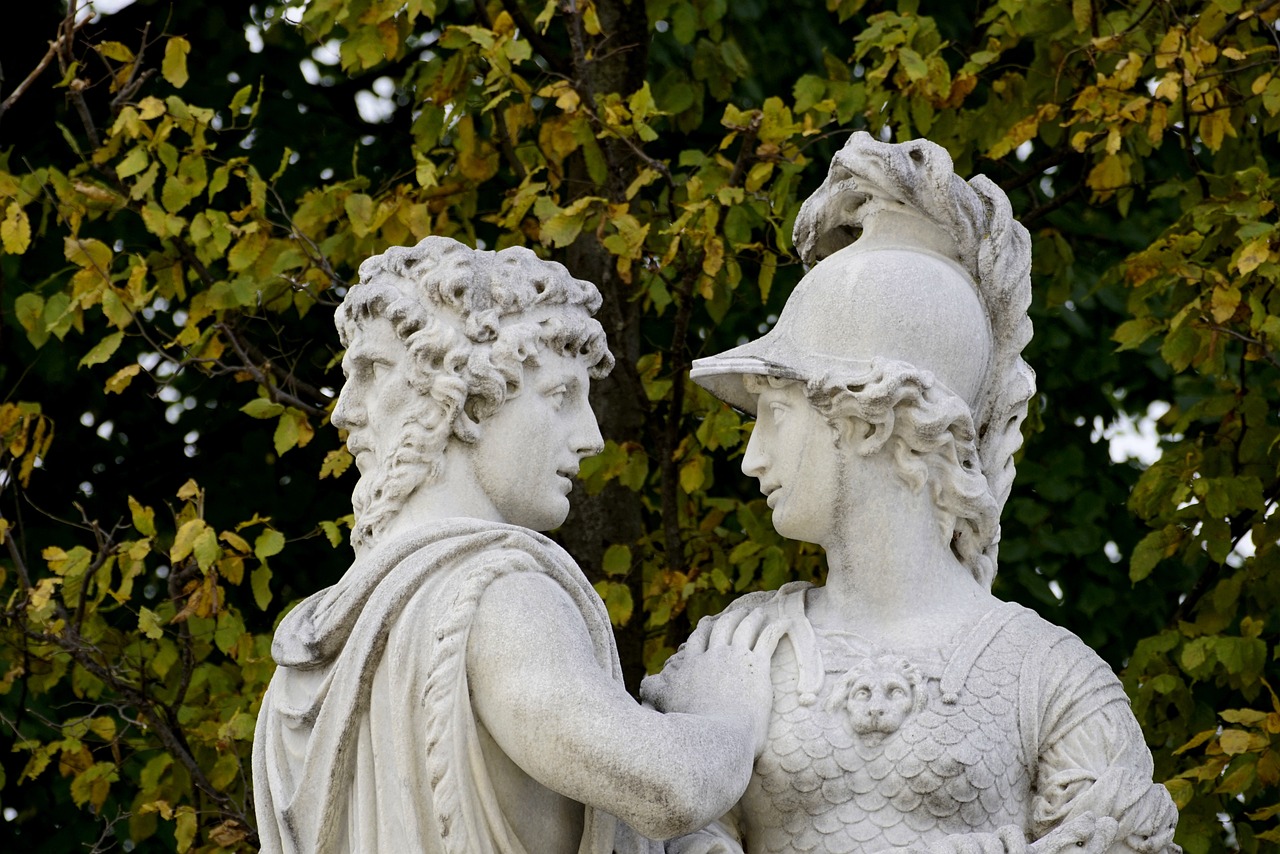An Overview of Greek Mythology
Greek mythology encompasses a rich tapestry of tales revolving around gods, heroes, and ancient Greek rituals that date back to Classical antiquity. The recognition of mythical narratives as partially fictional was highlighted by philosophers like Plato during the 5th to 4th centuries BCE. Nonetheless, these myths were largely embraced within popular Greek belief as factual accounts. The remnants of Greek culture have profoundly influenced Western civilization, with its myths standing unparalleled as sources of creativity and thought-provoking ideas since ancient times. Artists and poets throughout history have consistently drawn inspiration from these mythological narratives, finding relevance in their classical themes.
Origins of Myths: Literary and Archaeological Sources
The Homeric Epics: Iliad and Odyssey
The renowned Greek historian Herodotus, from the 5th century BCE, suggested that key figures like Homer and Hesiod played pivotal roles in shaping the characteristics of the Olympian gods. The initial lines of the Iliad, for example, immediately evoke familiarity with Greek mythology, vividly portraying the lineage of gods, particularly through Apollo, the son of Zeus and Leto. The contemporaneous audience was expected to have an intrinsic understanding of the preceding mythic tales. Rather than being perceived as mere entertainment, these myths were regarded seriously by many prominent Greek thinkers, leading to interpretations that were either refined or allegorical.
The Works of Hesiod: Theogony and Works and Days
Hesiod’s Theogony, dating around 700 BCE, stands as a primary source chronicling the genesis of the gods, featuring extensive genealogies intertwined with folktales and explanatory myths. His other major work, Works and Days, presents these narratives within the context of agricultural guidance and a moral discourse directed at his presumed brother, Perses. Scholars consider these two poems distinct in content, though they can also be seen as interdependent; while Theogony delineates the gods’ identities and alliances, Works and Days offers practical wisdom for navigating life’s trials, advocating for justice as a means of achieving stability.
Additional Literary Contributions
Several post-Homeric epics with varied authorship emerge to refine the accounts of the Trojan War that Homer laid out in the Iliad and Odyssey. The Homeric Hymns, a collection of shorter poetic works, serve as significant sources of religious myths. Furthermore, the lyrical poetry of figures like Pindar (6th–5th century BCE) is particularly noteworthy for its rich mythological content, while the tragic plays of Aeschylus, Sophocles, and Euripides, all contemporary to the 5th century BCE, showcase a wide array of mythic traditions.
The Hellenistic and Roman Contributions
During the Hellenistic era (323–30 BCE), Callimachus, a notable poet and scholar, documented numerous lesser-known myths, while his contemporary, Euhemerus, proposed that the divine beings had originally been human, a theory known as Euhemerism. Apollonius of Rhodes, another influential scholar from this period, crafted a detailed narrative of the Argonauts’ quest for the Golden Fleece. The Roman Empire later contributed to Greek mythology through works such as Strabo’s Geography (1st century BCE) and the Library of the pseudo-Apollodorus (2nd century CE), providing invaluable historical references and interpretations.
Archaeological Discoveries and Insights
The unearthing of ancient civilizations, notably the Mycenaean and Minoan societies, has enriched our comprehension of Greek myths and rituals. Pioneering archaeologists such as Heinrich Schliemann in the 19th century and Sir Arthur Evans in the 20th century brought to light elements of Mycenaean culture tracing back to 1600-1200 BCE, along with Minoan culture from 2200-1450 BCE. These findings have illuminated the characteristics and practices of these societies, although much of the evidence remains monumental. The Linear B script primarily recorded statistical information, limiting the immediate insights into their mythological practices. Artistic representations from the 8th century BCE, though formal and challenging to interpret, depict narratives from the Trojan War and the legendary exploits of Heracles, connecting literature and archaeology within the evolving narrative of Greek mythology.



